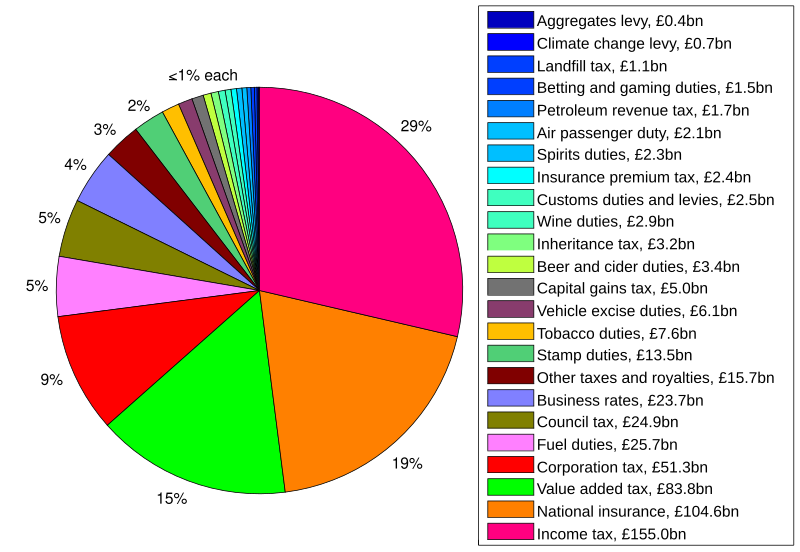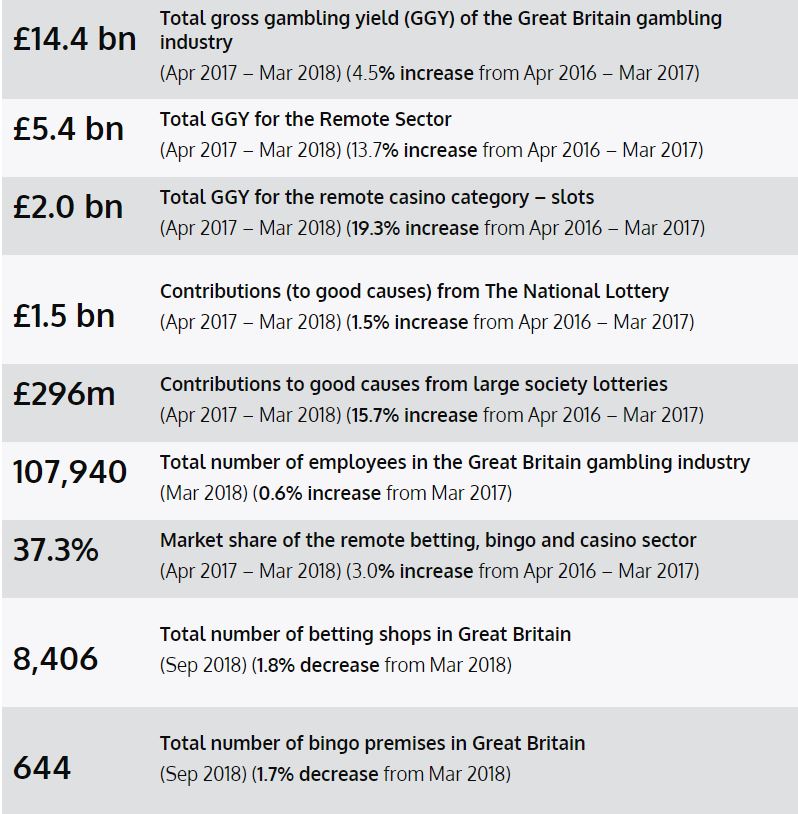Uk Gambling Tax Revenue
Gaming in many of its forms is perfectly legal in the UK through licensed operators. Stepping into a betting shop and placing a bet on a football game is practically a sport in itself in the UK.
People play the lottery, head down to the local bingo centre, have a spin on the fruit machines at the pub, and place plenty of online bets through sophisticated and fun apps and websites.

The additional tax revenue will be used to help gamblers who have addiction problems to recover. The reduced of the FOBTs maximum stake is estimated to eliminate £1.5 billion in tax revenue over 5 years. To make up these losses the government plan to increase the taxes paid by the gambling operator that is located outside the UK. Oct 31, 2019 The ‘UK Betting and Gaming Statistics’ release presents statistics from the 7 different gambling regimes administered by HM Revenue. Included within this release are monthly tax receipts. Online gambling accounts for most of the revenue at £5.6bn, about 38.8% of the total spend. That includes things like casino betting or bingo apps and games. After that, bets placed by customers.
The ‘UK Betting and Gaming Statistics’ release presents statistics from the 7 different gambling regimes administered by HM Revenue. Included within this release are monthly tax receipts. Oct 15, 2019 Gambling enterprises are required to pay the UK government a minimum of 15% tax on any amount up to £2,370,500. The tax then increases accordingly to 20%, 30%, 40% and 50%.
Of course, with such a large gaming industry, the government is sure to get a piece of that sweet, sweet gaming pie. The UK taxes companies that offer online gambling services to people living in the UK, whether the company is located in the UK or not.
Let’s take a look at what they are taxing and how much they’re gaining from this lucrative trade.
Taxation of online gambling for UK-based companies
Taxation of online gambling in the UK by UK-based companies can fall under a number of different duty categories. While you might think that online bingo would be covered under Bingo Duty, it’s actually classified as Remote Gaming Duty and taxed at 15% of profits. The same goes for online casino gaming, like the casinos over at BossCasino. Lotteries are charged under Lottery Duty, at 12% of all stake money played and payable within the accounting period.
Taxation of online gambling for offshore companies offering betting in the UK
Under UK law, non-UK companies offering betting and/or gaming services to people living in the UK need to register with HM Revenue and Customs, as well as pay tax. There are a few exemptions.
For these offshore companies, they will be required to pay one or more of the following taxes: General Betting Duty, Pool Betting Duty, or Remote Gaming Duty.
General Betting Duty is derived from the profits from general or pool bets that are made by UK customers on horse or dog racing, or bets placed through an offshore betting exchange. The rates for GBD are:
- 15% for fixed odds and totalisator bets
- 3% for financial spread bets
- 10% for all other spread bets
- 15% of the commission charges charged by betting exchanges to users who are UK people
(source)
Pool Betting Duty is derived from profits made on bets that are not fixed odds and not to do with horse or dog racing. This type of tax is charged at 15% of profits.
Remote Gaming Duty is paid by operators for remote gaming profits on bets and games by UK customers, including casino games, freeplays and bingo. Remote Gaming Duty is also 15%.
Do gamblers have to pay tax on their winnings in the UK too?
Under UK laws, there is no taxation on any winnings from betting – meaning if you place an online gambling bet and win a fortune that you can keep every sweet penny of it and none of it has to go to the tax man. The previous taxation required on winnings was done away with way back in 2001. Some other countries and jurisdictions are far more strict. For instance, in Vegas, the rate is 30% for overseas visitors, and 25% for winning for citizens over $5000.
How much is the UK making from online gambling overall?
According to Statistica, betting and gaming tax receipts from the UK hit £2.7bn in 2017, over double the amount that it was just 10 years ago. While this figure doesn’t distinguish between in-person and on-premise bets compared to online gambling, this is a hefty figure.
In a report from the UK Gambling Commission in 2017, it says that remote gambling is the largest sector within the gambling industry, accounting for 34% of the overall market, with a gross gambling yield for the year standing at £4.7bn, with slot games making up a majority of this figure at £2.6bn.
If we take 15% of that original number of £4.7bn (15% being the taxable rate), we’ll see that it amounts to £705mn for the year. That’s a whole lot of money going back into the country’s coffers from remote gambling and the figure is only expected to climb with more and more companies offering services and more and more players getting in on the action.
When you think about it, 15% being fairly much the standard across the board for online gambling taxes in the UK isn’t really that much. Income tax rates for individuals in the UK are far higher, 20% and more, unless you’re earning under £11,850 per year, when it is 0%. £705mn only amounts to funding for one major infrastructure works project in the UK.
The taxation rates for online gambling in the UK are fair and the profits made by the government from this activity aren’t as staggering as you might have thought. However, it’s still an industry on the rise so we may as yet see this taxation profits heading up into the billions very, very soon.
Gambling online and in brick-and-mortar establishments is a leisure activity for some – but for many, gambling is their profession. There is no shortage of professional poker players, sports bettors, bridge players and blackjack players out there making their living through gambling. Knowing about tax-laws and obligations as a gambler is essential, as mistakes can be very costly.
In some countries, gambling is 100% illegal. In countries where it is legal, there are regulations, rules & taxes to consider. In some countries and statres, casinos and betting establishments must obliged to pay tax on their profits, and in some cases, it is up to the individual to declare and pay taxes on their winnings.
International Tax Rates on Gambling Earnings
The biggest winners in the table are gamblers from the United Kingdom – with an effective tax rate of zero on ALL winnings,. This applies to all types of gambling—including poker, slots and casino games, lotteries, sports-betting & horse racing. Instead, gambling operators must pay taxes, and online gambling site operators must pay UK gambling tax duty.
In the United States, the tax rate owed on gambling winnings is a flat 25%. If you win big in Las Vegas at poker, the casino must withhold the 25% when collect your cashout, and provides you with IRS form W2-G to report your winnings to the government. Find out more on the IRS website.
Laws in Canada treat amateur and professional gamblers very differently for taxation purposes. According to the Income Tax Act, anyone in Canada winning a lottery prize or winning at a game of chance is not subject to income tax on those winnings. … In cases of sports betting, poker, or casino games and slots, winnings are also not liable for taxation – unless you are a professional gambler (as defined by paragraph 40(2)(f) of the Income Tax Act,). If you are , you must declare gambling winnings when you file your taxes and will be charged 26%.
Gambling Tax Laws
Don’t get Yang-ed
Back in 2007, poker-player Jerry Yang topped 6,358 players at the World Series of Poker Main event, winning $8.25 million.

Uk Gambling Tax Revenue Calculator
On a podcast, Yang admitted to bad financial management paying taxes of just $900,000 in California, and giving along with donations and gifts to family and friends. After bad financial advice he waa left with a huge federal tax bill. Subsequently the IRS seized the his Corum main event bracelet along with other jewelry to be auctioned off to the public in order to pay Yang’s outstanding tax-bill of $571,894.54 !
Uk Gambling Tax Revenue Forms
2019 World Series of Poker – Main Event: Final Table Tax-Bill
The 2019 WSOP Main event final table payouts combined to total $30,825,000.

The nine lucky players who cashed on the final table of the 2019 main-event can expect to pay a combined tax bill of $11,972,653 – or around 40% of the total prizepool. You can see from the table above that despite finishing in 7th place, Londoner Nick Marchington walks away with more money in his pocket than 6th place finisher Zhen Cai!
Federal Gambling Tax Rate
Make sure you know about your tax obligations as a gambler, and manage your money and tax-payments appropriately, because the tax-man always wins!